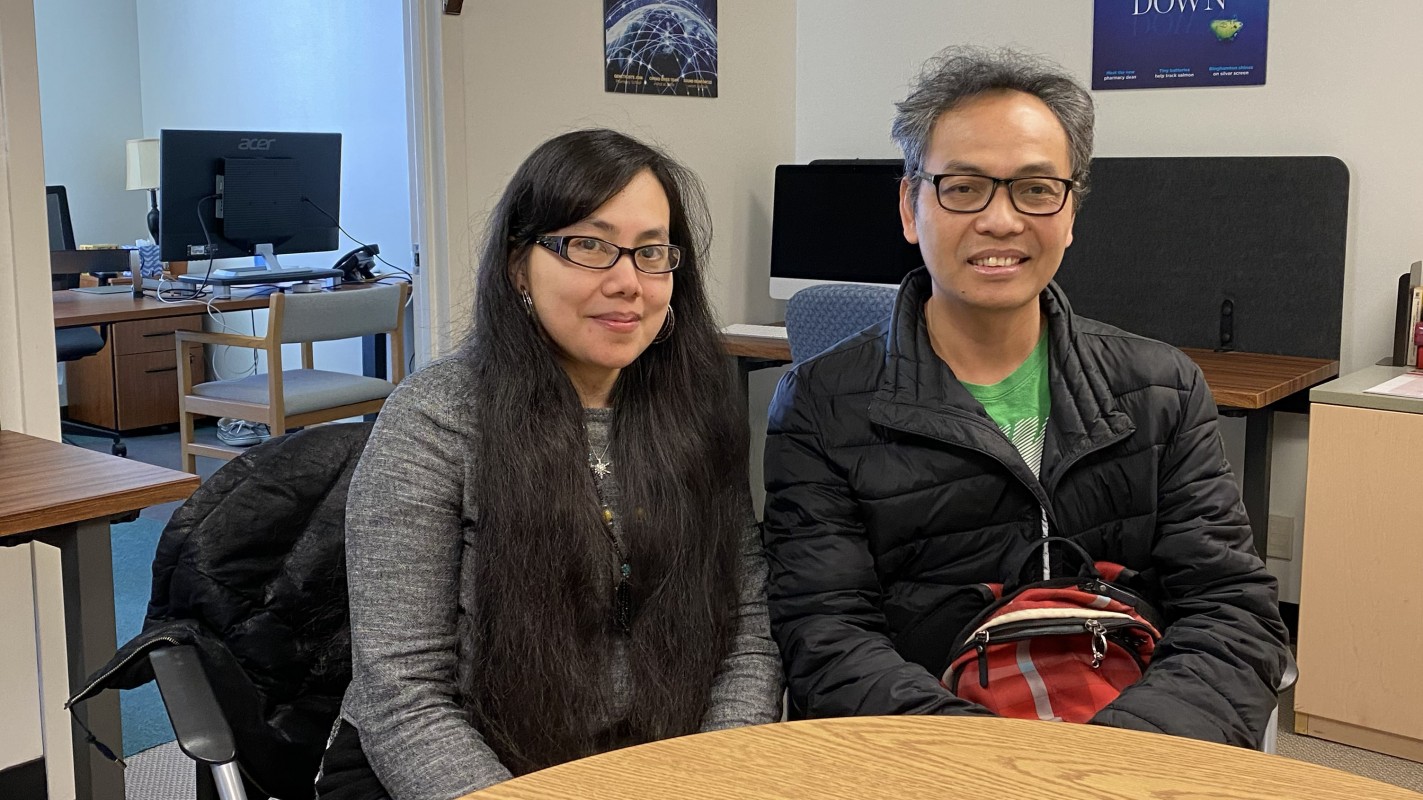Transforming feminism: Grad students create a safe space to discuss taboo topics
Diah Irawaty and Farid Muttaqin create the first-ever feminist conference in the Indonesian language

Diah Irawaty and Farid Muttaqin are trailblazers in their native Indonesia, where they created the first annual academic conference in feminism conducted entirely in the Indonesian language.
Called the Kartini Conference on Indonesian Feminisms, the June conference will take place on Zoom—and not just for the convenience of the international cadre of participants: It’s safer. According to the organizers, both Binghamton University doctoral students in anthropology, gender identity and sexual orientation are difficult to discuss openly in the Muslim-majority culture, which is culturally and politically restrictive.
“We’re talking about something that isn’t just considered taboo, but to a certain extent is considered a crime,” Irawaty said. “We have a lot of people who hate us.”
Hate isn’t too strong a word: They have been subject to online harassment and knocked off social media at intervals, as they provide a public forum for “feminist knowledge creation” on issues related to gender, sexuality, and domestic and sexual violence. But their work continues to grow, with a YouTube show called LETSS Talk, social media sites and even a book.
“This is a great example of how our students can apply academic research to people’s lives and have a far-reaching impact,” Associate Professor of Anthropology Kathleen Sterling said of their work.
Let’s talk about feminism
Before they came to Binghamton, Muttaqin and Irawaty were activists working with feminist organizations in their home country. At the University, they encountered concepts such as feminist ethnography and intersectionality, attended U.S. academic conferences and — during the coronavirus pandemic — mastered Zoom.
During the pandemic, they founded the Indonesian-language LETSS Talk, which educates viewers about sex education, sexuality and other topics of interest for feminist activism; the show’s tagline is “Let’s Talk about SEX n SEXUALITIES.” The show was in response to a bill against sexual violence that stalled in the Indonesian legislature for a decade; pandemic lockdowns, which spurred a wave of domestic violence around the world, brought increased urgency to the issue.
“We created a safe space to talk about issues considered taboo in Indonesia,” Irawaty said.
In June 2023, the Kartini Conference followed, named after a feminist pioneer in 19th-century Indonesia. Last year’s conference lasted four days and included 28 panel discussions, three plenary sessions and a keynote speaker; more than 800 people registered. The second annual conference will be held June 24 through 30, with even more scholars, activists and artists planned in more than 40 panel discussions.
The fact that the conference is conducted in the Indonesian language is significant. The island nation has more than 1,000 ethnicities, many of which have their own local languages, Irawaty explained; while most people also speak the national language, many are uncomfortable in English.
They don’t receive any funding for their show or the conference, which is free. They even pay for their own sign language interpreters.
“We try to make it inclusive; that’s the basic idea,” Irawaty said. “It’s kind of a breakthrough in Indonesia. We hope we can be a part of the development and transformation of feminism there.”
They bring together scholars who study issues related to feminism, gender and sexuality, as well as grassroots-level activists who work with marginalized populations such as domestic workers and LGBTQ individuals. Gay sex is still criminalized in Indonesia, Irawaty noted.
“This is a way to engage people involved in activism and scholarship, so they can sit together and talk about issues related to gender, sexuality and feminism,” she said. “We try to raise awareness that feminism is not exclusive; it’s about everyday life.”
Conference panelists and speakers are invited to submit papers, which are then published in an edited volume. Their first book, Transformasi Feminisme Indonesia: Pluralitas, Inklusivitas, dan Interseksionalitas (The Transformation of Indonesian Feminisms: Diversity, Inclusivity, and Intersectionality), launched on April 21; similar volumes will be published after every conference in the future, they said.
“This is the transformation of feminism in Indonesia; it’s not just older people, but also the younger generation, including teenagers,” Irawaty said. “We are trying to bridge the gap between the generations.”

